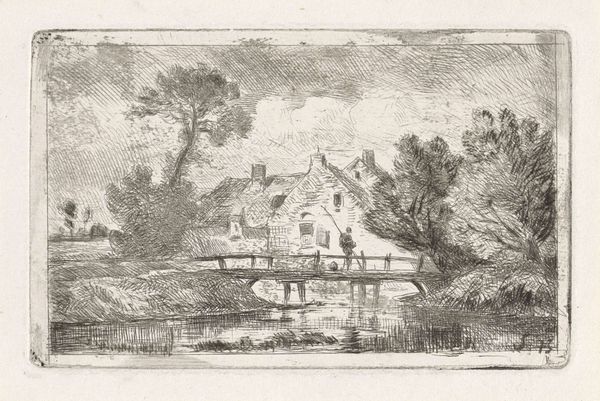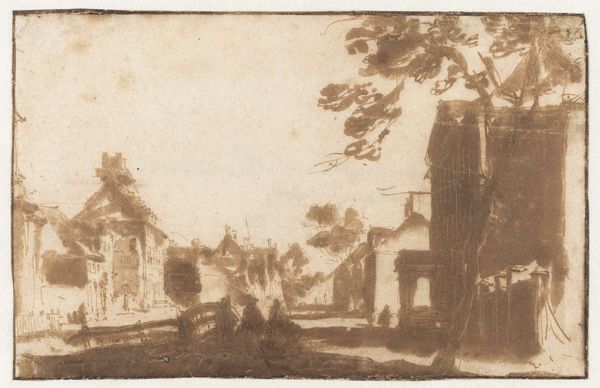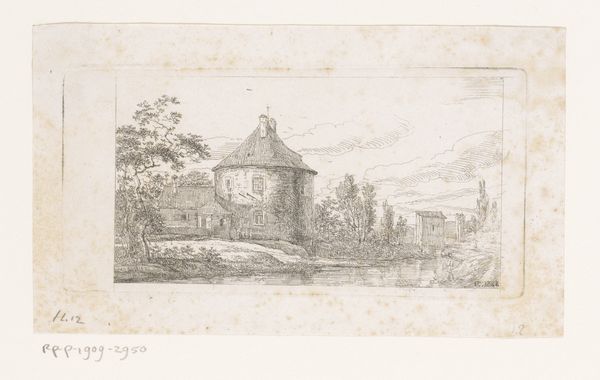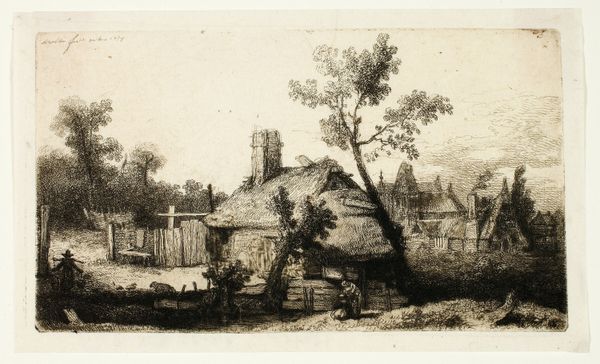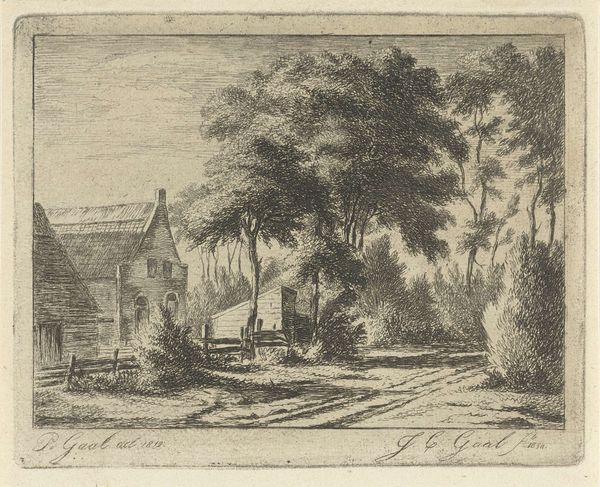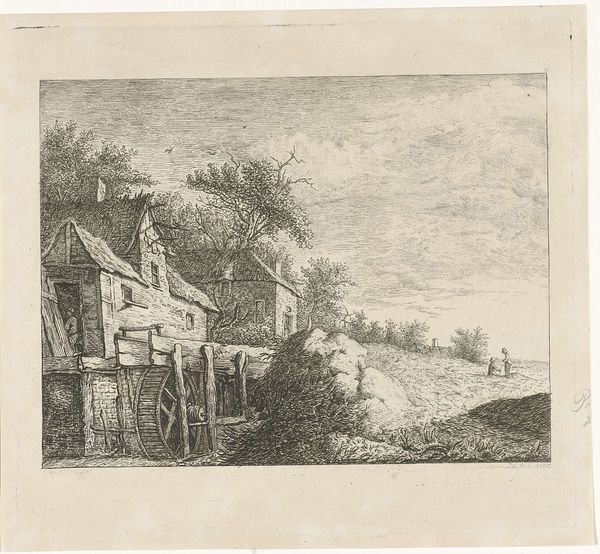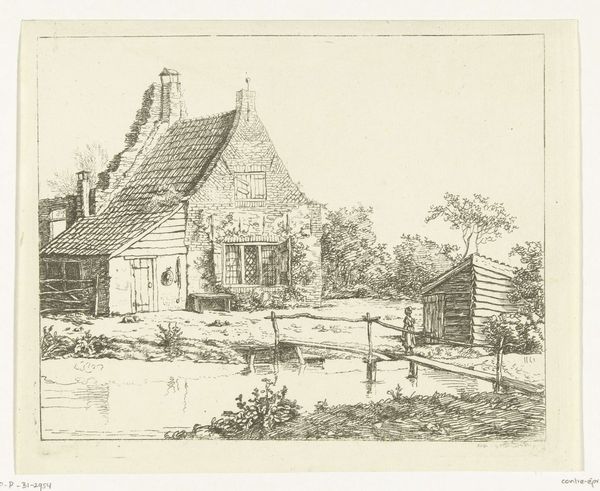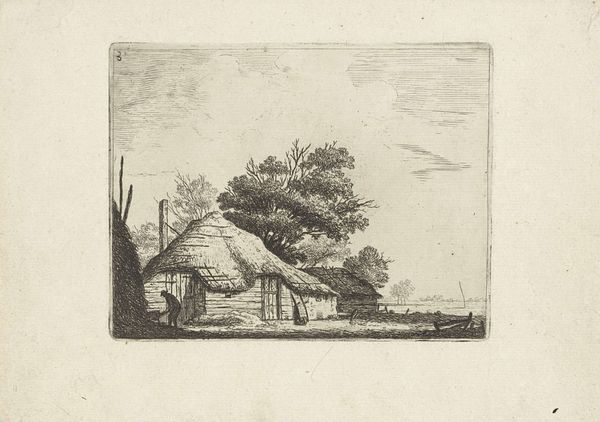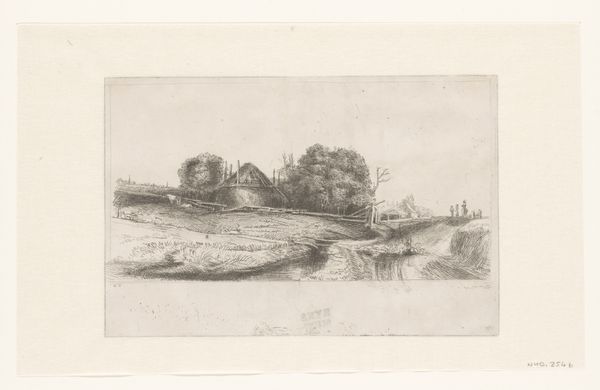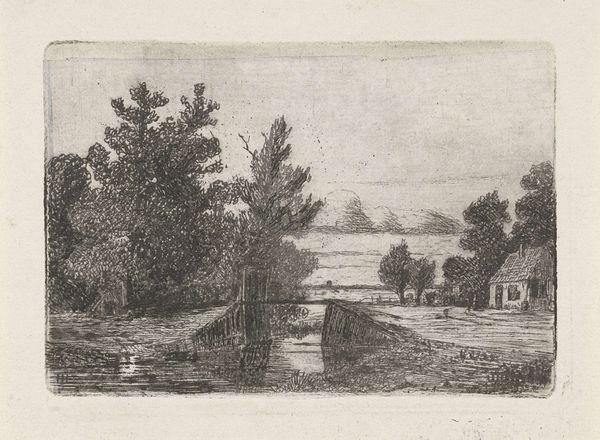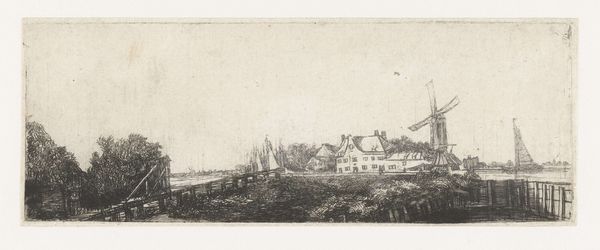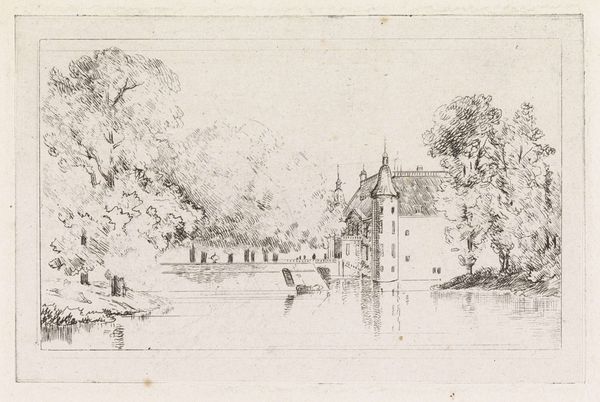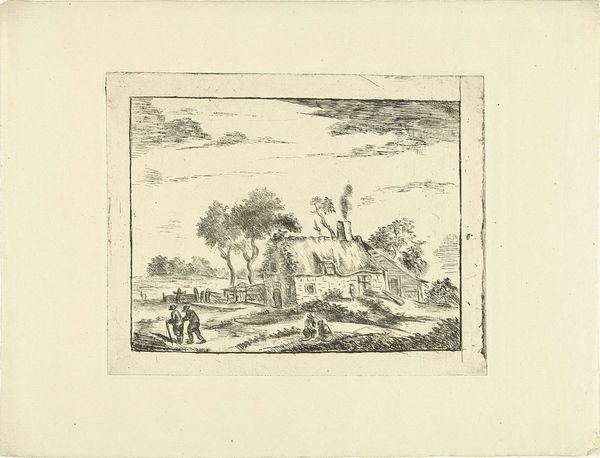
drawing, ink
#
drawing
#
dutch-golden-age
#
landscape
#
ink
#
realism
Dimensions: height 97 mm, width 154 mm
Copyright: Rijks Museum: Open Domain
Jan de Bisschop made this brown ink drawing of the Mauritshuis in The Hague sometime in the mid-17th century. The Mauritshuis, built in the Dutch Golden Age, embodies the era's economic prosperity and the social structure that supported it. The image captures the Mauritshuis not just as a building, but as a hub of power and influence. De Bisschop’s choice of perspective, showing the building amidst its urban setting, subtly comments on the relationship between wealth, architecture, and the public sphere. The cultural context of the Dutch Golden Age, with its emphasis on trade, exploration, and artistic innovation, provides a backdrop to understand the drawing's social implications. The Mauritshuis, originally the residence of Johan Maurits of Nassau-Siegen, Governor of Dutch Brazil, later became a museum, an institutional shift that reflects changing social values. To fully appreciate this work, it’s useful to explore archives of The Hague, architectural records, and biographies of key figures like Johan Maurits. Art history offers an opportunity to examine the intersection of art, society, and institutions.
Comments
No comments
Be the first to comment and join the conversation on the ultimate creative platform.
